-
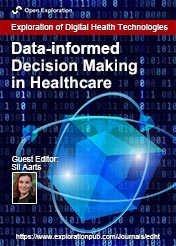 Special Issue Topic
Special Issue TopicData-informed Decision Making in Healthcare
Submission Deadline: August 31, 2025Guest Editor
Sil Aarts E-Mail
Assistant professor, Living Lab in Ageing and Long-term Care, Department of Health Services Research, Care and Public Health Research Institute (CAPHRI), Maastricht University, Maastricht, Netherlands.
Research Keywords: quality of care; nursing home science; technology in healthcare; data; statistics; R(stats); qualitative research
About the Special Issue
Data is invaluable to health care: the availability of increasing amounts of data offer new possibilities to support personalized health care. Healthcare organisation collect large amounts of data at client, employee and organizational level: data in electronic health records or data collected by digital techniques such as sensors or wearables, but also qualitative data in the form of texts collected in, for example, multidisciplinary consultations. Hence, care organisations collect a wealth of data, and thus information. This data can be used to support shared decision making, and thus in turn, improve quality of care for clients or patients or quality of work for employees. The present Special Issue responds to the remarkable change in the focus of the use of data in healthcare, where the use of data to make informed and shared decisions in care becomes vital. This Special Issue is focused on publishing highest quality papers in areas associated to data, data science and data-informed decision making in healthcare. Papers involving the use of data and/or data science methods with relevance to care, including care echelons such as long-term care or family medicine, will be considered for publication.
Keywords: data; data science; data-informed decision making; personalized health care
Call for Papers
Published Articles
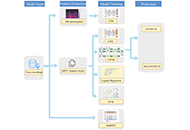 Developing a multi-variate prediction model for COVID-19 from crowd-sourced respiratory voice dataOpen AccessOriginal ArticleAim: COVID-19 has affected more than 223 countries worldwide and in the post-COVID era, there is a pressing need for non-invasive, low-cost, and highly scalable solutions to detect COVID-19. This [...] Read more.Yuyang Yan ... Visara UroviPublished: August 11, 2024 Explor Digit Health Technol. 2024;2:202–217
Developing a multi-variate prediction model for COVID-19 from crowd-sourced respiratory voice dataOpen AccessOriginal ArticleAim: COVID-19 has affected more than 223 countries worldwide and in the post-COVID era, there is a pressing need for non-invasive, low-cost, and highly scalable solutions to detect COVID-19. This [...] Read more.Yuyang Yan ... Visara UroviPublished: August 11, 2024 Explor Digit Health Technol. 2024;2:202–217
DOI: https://doi.org/10.37349/edht.2024.00022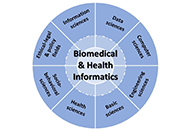 Digital twin technology training and research in health higher education: a reviewOpen AccessReviewHealthcare strives to ensure overall physical, mental, and emotional well-being for individuals while managing limited resources efficiently. Digital technologies can offer cost reduction, improved [...] Read more.Jyri RajamäkiPublished: August 05, 2024 Explor Digit Health Technol. 2024;2:188–201
Digital twin technology training and research in health higher education: a reviewOpen AccessReviewHealthcare strives to ensure overall physical, mental, and emotional well-being for individuals while managing limited resources efficiently. Digital technologies can offer cost reduction, improved [...] Read more.Jyri RajamäkiPublished: August 05, 2024 Explor Digit Health Technol. 2024;2:188–201
DOI: https://doi.org/10.37349/edht.2024.00021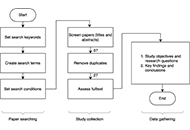 Do you need a blockchain in healthcare data sharing? A tertiary reviewOpen AccessSystematic ReviewBackground: This study addresses the complexities of utilizing blockchain technology in healthcare, aiming to provide a decision-making tool for healthcare professionals and policymakers evaluati [...] Read more.Kun Li ... Visara UroviPublished: June 14, 2024 Explor Digit Health Technol. 2024;2:101–123
Do you need a blockchain in healthcare data sharing? A tertiary reviewOpen AccessSystematic ReviewBackground: This study addresses the complexities of utilizing blockchain technology in healthcare, aiming to provide a decision-making tool for healthcare professionals and policymakers evaluati [...] Read more.Kun Li ... Visara UroviPublished: June 14, 2024 Explor Digit Health Technol. 2024;2:101–123
DOI: https://doi.org/10.37349/edht.2024.00014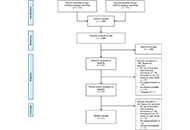 Data science techniques to gain novel insights into quality of care: a scoping review of long-term care for older adultsOpen AccessSystematic ReviewBackground: The increase in powerful computers and technological devices as well as new forms of data analysis such as machine learning have resulted in the widespread availability of data scienc [...] Read more.Ard Hendriks ... Sil AartsPublished: April 12, 2024 Explor Digit Health Technol. 2024;2:67–85
Data science techniques to gain novel insights into quality of care: a scoping review of long-term care for older adultsOpen AccessSystematic ReviewBackground: The increase in powerful computers and technological devices as well as new forms of data analysis such as machine learning have resulted in the widespread availability of data scienc [...] Read more.Ard Hendriks ... Sil AartsPublished: April 12, 2024 Explor Digit Health Technol. 2024;2:67–85
DOI: https://doi.org/10.37349/edht.2024.00012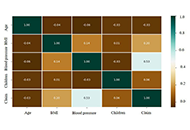 Use of responsible artificial intelligence to predict health insurance claims in the USA using machine learning algorithmsOpen AccessOriginal ArticleAim: This study investigates the potential of artificial intelligence (AI) in revolutionizing healthcare insurance claim processing in the USA. It aims to determine the most effective machine lea [...] Read more.Ashrafe Alam, Victor R. PrybutokPublished: February 28, 2024 Explor Digit Health Technol. 2024;2:30–45
Use of responsible artificial intelligence to predict health insurance claims in the USA using machine learning algorithmsOpen AccessOriginal ArticleAim: This study investigates the potential of artificial intelligence (AI) in revolutionizing healthcare insurance claim processing in the USA. It aims to determine the most effective machine lea [...] Read more.Ashrafe Alam, Victor R. PrybutokPublished: February 28, 2024 Explor Digit Health Technol. 2024;2:30–45
DOI: https://doi.org/10.37349/edht.2024.00009 -
-
Ongoing Special Issues